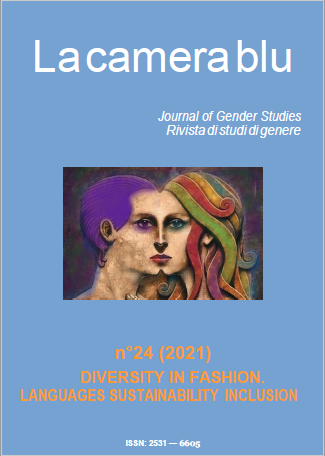Clothing in trans identity. Notes on the significance of dressing up and trans resignification between terfism and prisons
DOI:
https://doi.org/10.6093/1827-9198/8940Keywords:
resignification, transsexualism, gender, clothing, prisonAbstract
What’s the role of feminine clothing in the construction of male-to-female transsexual identity? Is it really necessary for some transsexual women to exhibit stereotypical feminine attributes? Would it be possible, or preferable, that every trans life be lived genderlessly? The aim of this paper is to explore trans-exclusionary radical feminism's criticism to the trans acquisition of classic gender attributes and to respond by showing the crucial role of this acquisition not only with regard to the construction of the subjectivity of transsexual women, but also in the broader context of fighting heteropatriarchy. For this purpose, I will try to highlight how trans-exclusionary radical feminists misinterpret trans identity and its profoundly subversive meaning, and I will try to explore the complex and often contradictory processes of identity construction of trans and generally oppressed subjects. Lastly, by briefly turning my gaze to the prison system, I will provide a practical example of how noxious the mindless dismissal of the trans acquisition of gender performances can be.
Downloads
Downloads
Published
How to Cite
Issue
Section
License
La camera blu is an open access, online publication, with licence CCPL Creative Commons Attribution 3.0 Unported


